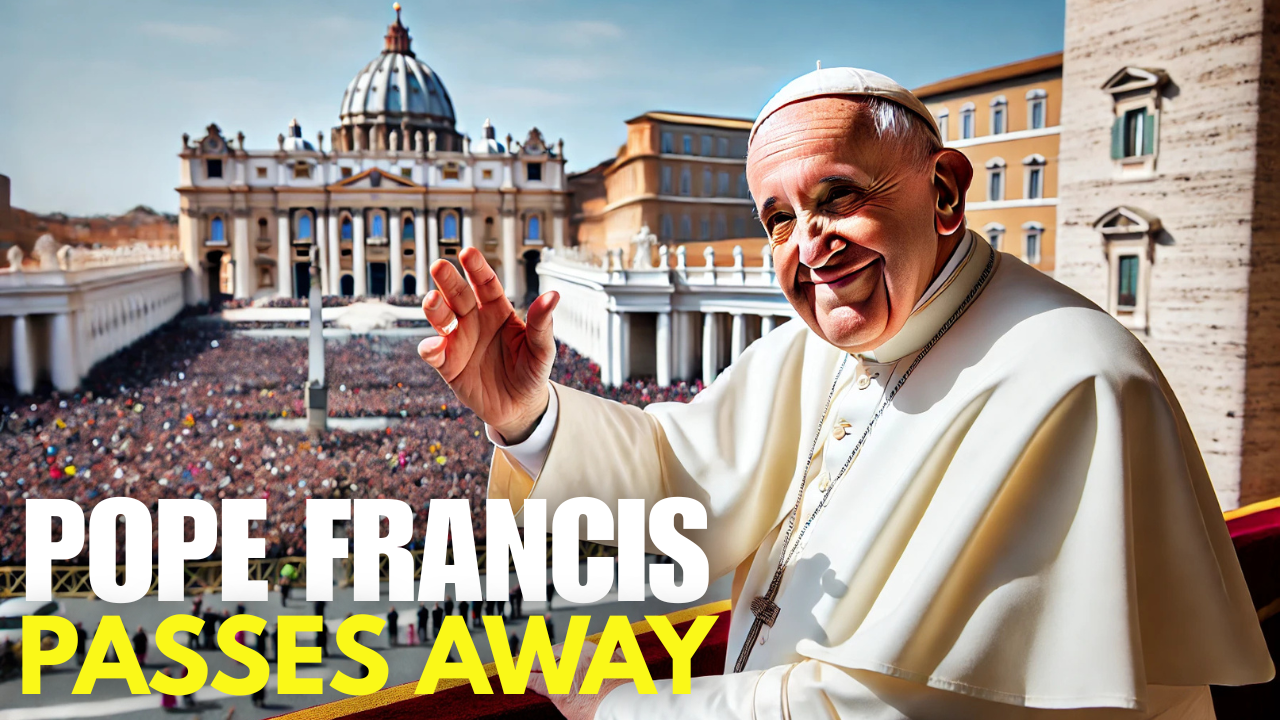
The Life and Legacy of Pope Francis: Humility, Reform, and Global Impact
Introduction
Pope Francis, born Jorge Mario Bergoglio on December 17, 1936, in Buenos Aires, Argentina, is one of the most significant religious figures of the 21st century. From his early life in Argentina to his elevation to the papacy in 2013, Pope Francis' journey is one of resilience, humility, and dedication to social justice. His papacy, defined by his emphasis on mercy, poverty, and environmental stewardship, has had profound implications not only for the Roman Catholic Church but also for the world at large.
Early Life and Formation
Jorge Mario Bergoglio was born into a family of Italian immigrants in Buenos Aires. He grew up in a modest household, and his early years were shaped by the values of hard work and solidarity. His father, an Italian immigrant, worked as a railway worker, while his mother was a homemaker. Bergoglio was the oldest of five children, and his upbringing in the working-class neighborhood of Flores instilled in him a sense of responsibility toward the less fortunate.
At the age of 21, Bergoglio entered the Society of Jesus (the Jesuit order) and began his studies for the priesthood. His path to priesthood was not straightforward. He struggled with health issues, including a severe lung infection, but eventually overcame them to continue his seminary training. In 1969, he was ordained as a priest and embarked on a journey of spiritual service and leadership.
Bergoglio's academic focus was in the fields of philosophy and theology, and he was well-versed in both. His intellectual rigor, combined with his profound spiritual insights, marked the beginning of his commitment to reform within the Church. His deep connection to the teachings of St. Ignatius of Loyola, the founder of the Jesuits, shaped his approach to leadership, emphasizing discernment, service, and the importance of community.
His Jesuit Years and Leadership in Argentina
During his years as a Jesuit, Bergoglio's leadership abilities quickly became apparent. In the 1970s, he was appointed as the Provincial Superior of the Jesuits in Argentina, where he led the order through a turbulent period marked by political unrest and dictatorship. Argentina was under military rule at the time, and the government was responsible for numerous human rights abuses, including the disappearance of thousands of people.
Bergoglio's tenure as Provincial Superior was marked by his complex relationship with the military junta. He later faced criticism for not doing more to speak out against the regime, though it is important to note that his actions were often constrained by the political climate. Bergoglio's supporters argue that he quietly saved many lives by offering refuge to individuals targeted by the regime, while his critics claim that he did not speak out forcefully enough.
In the years following the dictatorship's collapse, Bergoglio's reputation grew as a leader of the Church in Argentina, advocating for social justice, poverty alleviation, and the protection of human rights. He became known for his humility, often choosing to live a simple life, and for his focus on serving the marginalized. He was appointed Archbishop of Buenos Aires in 1998 and became a cardinal in 2001.
Becoming Pope Francis: A New Era for the Catholic Church
In March 2013, after the resignation of Pope Benedict XVI, the Catholic Church found itself at a crossroads. The conclave that was held to select a new pope was tasked with finding someone who could guide the Church into the future, particularly in the face of declining numbers in Western Europe and the scandals that had plagued the Church in recent years.
Jorge Mario Bergoglio, at the age of 76, was elected as the 266th pope of the Roman Catholic Church. He chose the name Pope Francis, in honor of St. Francis of Assisi, the patron saint of the poor and a symbol of humility and simplicity. This decision immediately set the tone for his papacy, signaling a shift away from the more traditional, insular image of the papacy toward one focused on mercy, poverty, and outreach to the marginalized.
Pope Francis' election was historic in many ways. He was the first pope from the Americas, the first Jesuit pope, and the first pope to take the name Francis. His selection marked a recognition of the global South’s increasing importance within the Catholic Church, and it represented a desire for change and reform at the highest levels of the Church.
The Core Values of Pope Francis' Papacy
Pope Francis' papacy is defined by several key themes, each of which has reshaped the global understanding of Catholicism:
1. Emphasis on Mercy: Pope Francis often speaks of God’s mercy as a central element of the faith. In his first major encyclical, Lumen Fidei (The Light of Faith), he emphasized that the Church must be a “field hospital” for the wounded, offering mercy to all who seek it. This message resonated deeply with Catholics and non-Catholics alike, as it called for a Church that was less focused on judgment and more concerned with the healing of spiritual wounds.
2. A Focus on Poverty: One of the most striking aspects of Pope Francis' papacy is his focus on poverty and economic inequality. His concern for the poor and marginalized is evident in both his personal lifestyle and his public statements. He has frequently condemned the excesses of capitalism and called for a more just economic system that prioritizes human dignity over profit. He chose to live in a simple guesthouse rather than the luxurious papal apartments, signaling his commitment to simplicity and humility.
3. Environmental Stewardship: Pope Francis made a groundbreaking contribution to the Church’s engagement with environmental issues with the publication of his 2015 encyclical Laudato Si’ (Praise Be to You). In this document, he called for global action to address climate change, urging Catholics and people of all faiths to care for the earth as a common home. Laudato Si’ was praised for its scientific rigor and its moral clarity, highlighting the need for immediate action to protect the environment.
4. Outreach to Other Faiths: Pope Francis has worked tirelessly to build bridges between the Catholic Church and other religious communities. His efforts to improve relations with Jews, Muslims, and other Christian denominations have been widely recognized. His visit to the Holy Land in 2014, his historic meetings with leaders of the Russian Orthodox Church, and his interfaith dialogue efforts have all underscored his commitment to peace and understanding.
5. Addressing the Sexual Abuse Crisis: Pope Francis' papacy has also been defined by his efforts to address the sexual abuse scandals that have rocked the Catholic Church. He has made significant strides in acknowledging the Church's failures in handling abuse cases and has worked to create accountability and transparency in the Vatican. His establishment of a new commission to protect minors and his repeated calls for the Church to do more to support survivors of abuse have been key aspects of his efforts to restore trust.
Challenges and Controversies
While Pope Francis is widely admired for his leadership and vision, his papacy has not been without its challenges and controversies. His calls for reform, particularly in relation to the Church’s handling of issues like sexual abuse and its stance on LGBTQ+ rights, have drawn criticism from conservative factions within the Church. There have been tensions between those who embrace his calls for change and those who believe he is moving too quickly or too radically.
His stance on issues such as divorce, remarriage, and LGBTQ+ rights has sparked debate, with some critics arguing that he has been too lenient, while others praise his compassion and desire to engage with difficult issues in a pastoral way.
Pope Francis' Legacy and Impact
Pope Francis' legacy will be remembered for his transformative approach to the papacy. His efforts to reform the Church, his emphasis on mercy and social justice, and his commitment to the marginalized have made him one of the most influential religious leaders in modern history. His papacy has been marked by a spirit of renewal and reform, and he leaves behind a Church that is more attuned to the needs of the world’s poor and suffering.
As the Church faces new challenges in the 21st century, Pope Francis' vision of a more inclusive, compassionate, and humble Church will continue to guide its path forward.
Conclusion
Pope Francis' life is a testament to the power of humility, compassion, and service. From his early years in Buenos Aires to his elevation as the first Latin American pope, he has dedicated his life to the service of others, particularly those who are most in need. Through his papacy, he has shown that the Church’s mission is not only to uphold doctrine but also to embrace the poor, the outcast, and the oppressed. His focus on mercy, justice, and environmental stewardship has left an indelible mark on the Catholic Church and the world, making him one of the most influential leaders of our time.


Comments (0)
No comments yet. Be the first to comment!